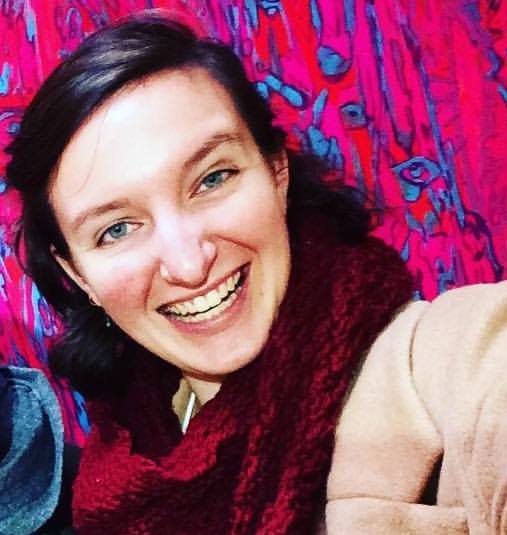Decolonizing Birth Conference 2017: part three
by Molly McShane
Over the last two weeks I have written about the workshops and keynotes I attended at Ancient Song Doula Services' annual Decolonizing Birth Conference. In the third section of this series I'll share about a panel representing the Black Mamas Matter Alliance, a group centering Black mamas to advocate, drive research, build power, and shift culture for Black maternal health, rights, and justice. Learn more about BMMA here.
The panel talked about the alliance and their role in the field of maternal health. Two of the core members and supporters are SisterSong Reproductive Justice Collective and the Center for Reproductive Rights. The group has talked about the issue of huge racial disparities in maternal mortality and produced a policy toolkit. There is no other entity working in maternal health led exclusively by Black women. BMMA is looking for more policy, more research, and more solutions addressing Black maternal mortality and are pushing for educational platforms and a birth justice framework, especially with providers. They elaborated that “health equity” work (vs. a focus just on health disparities) is not fully complete without room for doulas and midwives in practices and without people of color led organizations that are often passed over for funding that instead goes to white-led organizations. Finally, they talked about how the slogan, “Black Birth Matters” has been appropriated by anti-choice/pro-life campaigns to discourage Black parents from getting abortions, but within a reproductive justice frameworks all pregnancy outcomes should be supported, despite the fact that this collective focuses primarily on people giving birth.
Resources:
- Death by Delivery (documentary)
The final keynote speaker was Dorothy Roberts, who presented a talk entitled, “Why Birth Justice Matters to Reproductive Justice.”
Dorothy Roberts is a professor of law and sociology and the author of numerous books on race, reproduction, social justice, and bioethics. She began her her presentation by reminding us of the limits of a pro-choice framework. Just because options exist, you cannot always just do what you would like to. Various factors complicate these choices and make them inaccessible, therefore only conceiving of reproductive well-being as a matter of pure choice is unrealistic and in some ways harmful. Roberts went on to elaborate on how reproductive violence is embedded in United States history. For example, one of the first laws in colonial Virginia was that mixed-race babies would carry the racial status of their mothers, therefore if a mixed-race baby was born to a Black mother, that baby would be enslaved.
From this point onwards, people in the United States have conceived of Black women’s reproduction as the reproduction of oppression in their wombs. Other examples include the myth of the “Welfare Queen” and welfare restructuring in the 1990’s with exclusively racialized legislation that disincentivized low-income women of color from having children and/or allowed for their parental rights to be forcibly removed (look up the Personal Responsibility and Work Opportunity Reconciliation Act of 1996 and the Adoption and Safe Families Act of 1997). Black women are about 4 times as likely to die from pregnancy-related causes than white women in the United States, a statistic that puts the United States far behind other “developed” nations in maternal mortality rates. Roberts offered the following suggestions to start addressing the reproductive injustice through an a reproductive justice framework.
- Trust Black women!
- Make doulas and midwives more than just another “choice” in a pro-choice framework, but make them accessible and pervasive.
- Practice ethical contraceptive counseling: It is important not to be coercive or to conceive of young people as incapable of making choices about parenting. LARCs are useful and practical for many people, but they are not a solution to poverty.
Resources:
- Killing the Black Body by Dorothy Roberts
- Shattered Bonds by Dorothy Roberts
- Pushing for Midwives by Christa Craven
The Decolonizing Birth Conference brought birth justice as a wing of reproductive justice to the forefront of all participants’ worlds, at least for the weekend. It compelled everyone to bring these frameworks to their practices as birth workers or public health professionals, asking us to consider our place within systems of power and oppression and work collaboratively to break these systems down and affirm the reproductive experiences of marginalized communities. I’m looking forward to next year!
 Molly McShane is currently a student, nanny, full-spectrum doula, and now one of your Communication Committee Interns! Molly grew up in Washington, DC and graduated with a BA in Gender, Sexuality, and Feminist studies from a small school in Vermont in 2016. She is now a Brooklyn resident taking prerequisite classes before applying to schools with the intention of one day becoming a midwife. She is particularly interested in trauma-informed care and how to best serve LGBTQ families in birth. In her spare time, Molly likes to watch Call the Midwife (over and over again), take walks in Prospect Park, bake pies, and read birth-themed books. Talk to her about reproductive justice, the connections between witches and midwives, and prenatal care in Star Wars!
Molly McShane is currently a student, nanny, full-spectrum doula, and now one of your Communication Committee Interns! Molly grew up in Washington, DC and graduated with a BA in Gender, Sexuality, and Feminist studies from a small school in Vermont in 2016. She is now a Brooklyn resident taking prerequisite classes before applying to schools with the intention of one day becoming a midwife. She is particularly interested in trauma-informed care and how to best serve LGBTQ families in birth. In her spare time, Molly likes to watch Call the Midwife (over and over again), take walks in Prospect Park, bake pies, and read birth-themed books. Talk to her about reproductive justice, the connections between witches and midwives, and prenatal care in Star Wars!
Join Our Mailing List
Keep up to date with the latest news and announcements from NYC Midwives.
